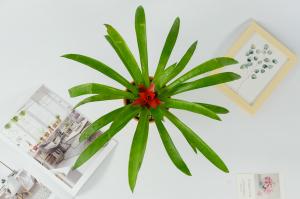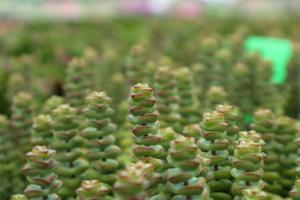How to Save a Dying Potted Rose Plant
Potted roses are a beautiful addition to any home or garden, but maintaining their health can be a challenge. While a healthy rose plant can last for years, a dying rose plant can quickly become an eyesore. If you notice that your potted rose plant is struggling, here are some tips to help revive it.
Identify the Problem
The first step to saving a dying potted rose plant is to identify the problem. Rose plants can suffer from a variety of issues, such as overwatering or underwatering, pest infestations, diseases, or nutrient deficiencies. Take a close look at your rose plant to determine what is causing the problem. Check the soil for moisture level, inspect the leaves for signs of pests or diseases, and consider the amount of sunlight and temperature the plant is receiving.
Take Corrective Measures
Once you have identified the problem, take corrective measures to address it. Here are some potential solutions to common issues:
Overwatering
If your potted rose plant is experiencing overwatering, stop watering it and allow the soil to dry out. Remove any standing water in the drainage tray, and make sure that the pot has drainage holes. Make adjustments to your watering schedule and monitor the moisture level of the soil in the future.
Underwatering
If your potted rose plant is experiencing underwatering, water it thoroughly and make sure that the soil is well-draining. Consider adding a layer of mulch to help retain moisture. Monitor the moisture level of the soil going forward and adjust your watering schedule as necessary.
Pest Infestations
If your potted rose plant is suffering from a pest infestation, identify the type of pest and the possible treatment options. Common pests include aphids, spider mites, and thrips. Consider using organic pest control methods such as neem oil or insecticidal soap.
Diseases
If your potted rose plant has a disease, isolate it from other plants to prevent the spread of the disease. Identify the disease and adopt the recommended treatment, which may include cutting away infected foliage or using a fungicide.
Nutrient Deficiencies
If your potted rose plant is experiencing nutrient deficiencies, consider using a well-balanced fertilizer specifically formulated for roses. Follow the instructions on the package for best results.
Provide Optimal Growing Conditions
After taking corrective measures, provide your potted rose plant with the optimal growing conditions to help it recover. Make sure it is receiving the right amount of sunlight and temperature for the type of rose plant you have. Water the plant regularly, and fertilize as needed. Consider also pruning errant branches to direct energy to healthier foliage.
Conclusion
Saving a dying potted rose plant requires some detective work and patience, but once you identify the problem and provide corrective measures, your plant has a good chance of survival. By providing optimal growing conditions, you can help your rose plant recover and flourish.

 how many times do yo...
how many times do yo... how many planted tre...
how many planted tre... how many pine trees ...
how many pine trees ... how many pecan trees...
how many pecan trees... how many plants comp...
how many plants comp... how many plants can ...
how many plants can ... how many plants and ...
how many plants and ... how many pepper plan...
how many pepper plan...





























